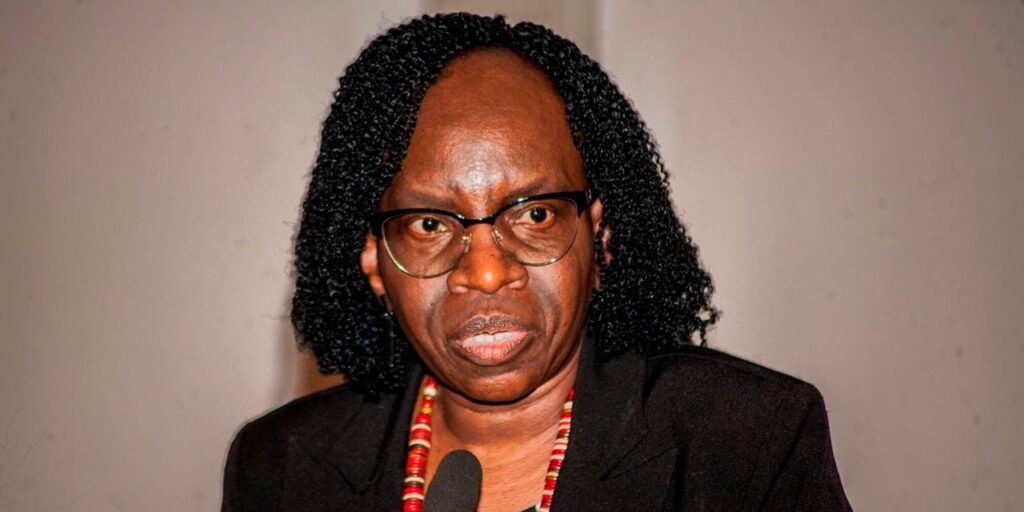Auditor General Nancy Gathungu has raised serious concerns over the EduAfya student health insurance scheme, highlighting Sh2.2 billion in unexplained overpayments. The revelations were made in a special audit report tabled in Parliament on Tuesday, exposing systemic flaws in the administration of the state-funded programme.
EduAfya, which was launched in May 2018 to provide medical cover for learners in public secondary schools, is financed through the Free Day Secondary Education (FDSE) programme. However, the Auditor General’s findings reveal that the government remitted Sh16.4 billion to the defunct National Health Insurance Fund (NHIF), while the premiums due during the 2020-2024 audit period stood at Sh14.17 billion resulting in an excess remittance of Sh2.29 billion.
The report exposes deeper issues, including payments for non-existent beneficiaries, inflated premiums, and weak oversight by the Ministries of Education and Health. Out of the 9,312 schools whose capitation funds were channeled to the scheme, only 8,846 had records of students accessing medical services.
Alarmingly, 465 schools that had Sh273 million in capitation funds remitted showed no evidence of beneficiaries receiving care. Even more, 4,100 primary and junior secondary schools which were ineligible for the scheme reportedly accessed medical services worth Sh40 million.
Furthermore, despite the EduAfya scheme officially ending on December 31, 2023, the audit discovered medical claims dated up to February 28, 2024, including 65 visits amounting to Sh35,550.
Gathungu noted that the Sh16.4 billion paid over the four-year period yielded only Sh5.3 billion worth of medical services, raising serious concerns about value for money. “The value for money on the disbursed amount…could not be confirmed,” the report states.
The contract between NHIF and the Ministry of Education, signed on March 1, 2018, originally targeted three million students with comprehensive medical coverage, including inpatient and outpatient services, accidental death benefits, and last expense coverage.
The findings now call for accountability from government agencies and renewed scrutiny of public health insurance schemes.

